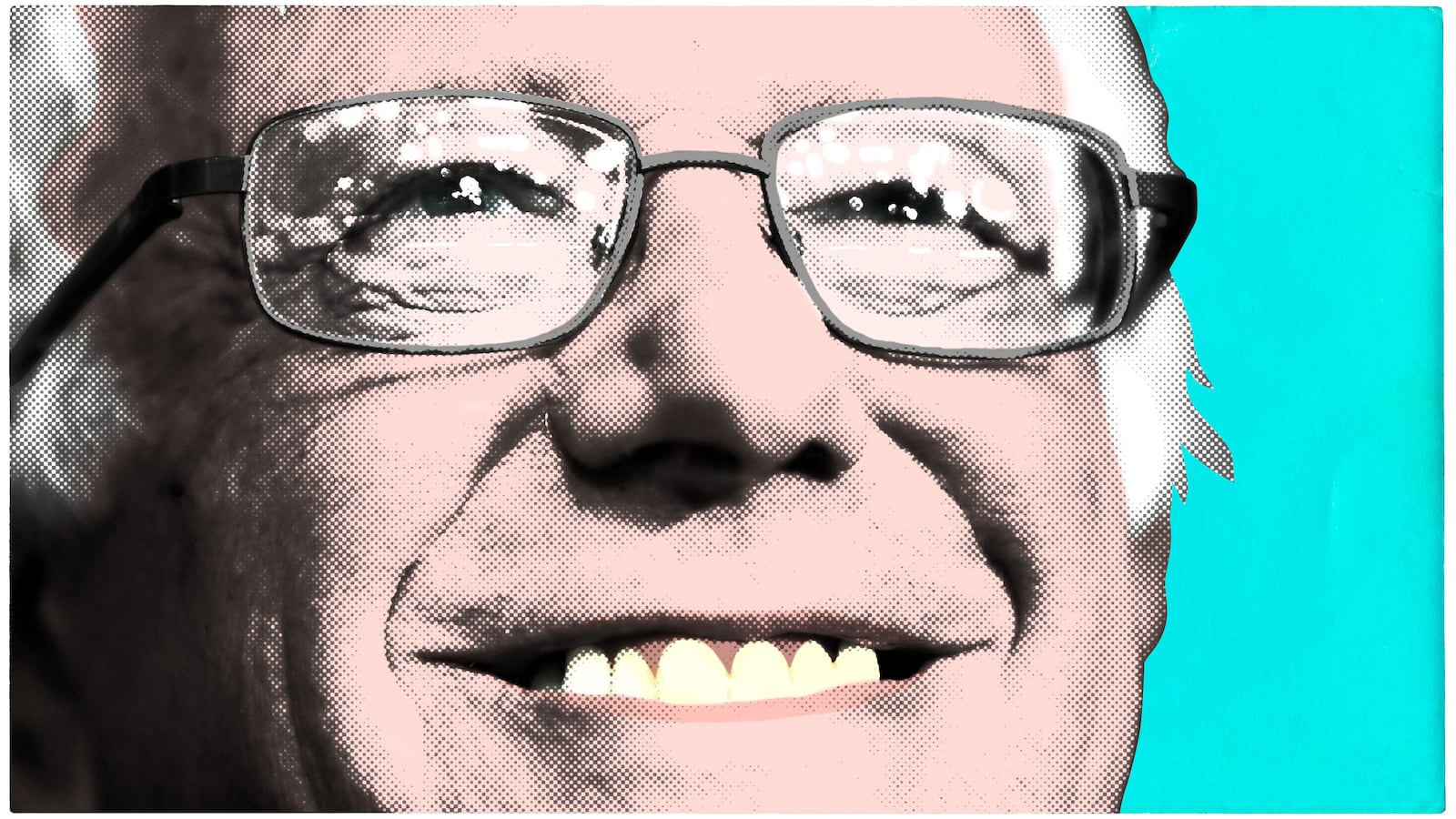Senator Bernie Sanders (I-VT) believes Donald Trump may be on to something.
The Independent Democratic-Socialist from Vermont, known as one of the Senate’s immoveable progressives, says he has found a patch of ideological common ground with a man who progressives bemoan on a daily—no, hourly—basis. But as the president prepares to announce on Thursday new tariffs on steel and aluminum imported from overseas, Sanders isn’t sure that he is going about addressing their mutually-agreed-upon problem in the right manner.
“We need to fundamentally rethink our trade policies and move to fair trade rather than just unfettered free trade,” Sanders told The Daily Beast in an interview on Wednesday afternoon. “So Trump is identifying a problem. Certainly China’s role in dumping an enormous amount of steel, not only in the United States, but all over the world, is very very clear. It has to be dealt with.”
“In my view though, what you need is a comprehensive, a more comprehensive approach than Trump is laying out,” Sanders continued. “So what I would like to see is Congress begin to rethink our trade policies and hopefully we will have a president supportive of that. So he is identifying the problem correctly but I’m not sure that his particular solution at this moment is exactly the right one.”
Sanders support for steel and aluminum tariffs—at least in the abstract—reflects the strange-bedfellows political coalition that has formed around the latest, controversial Trump policy. Three Democratic senators in 2018 reelection battles, hailing from states that Trump won, have also said they agree with the president on the issue, including Sen. Sherrod Brown (D-OH), Sen. Bob Casey (D-PA) and Sen. Joe Manchin (D-W.V.).
But while Trump may have gained some odd allies on the matter, he’s also seen his own party, and staff, abandon him. The policy, and the haphazard way in which it was put together has prompted the departure of chief economic adviser Gary Cohn and riled Republicans in Congress, who have been attempting to get him to reverse course.
As of Wednesday, the president had given limited indication that he would budge, with the most recent development being that the White House will carve out Mexico and Canada with regards to the tariffs but keep the broad thrust of the policy in place.
One reason why may be the perception that it can be good politics.
Sanders, who spoke to The Daily Beast before a Friday trip that would bring him to Texas and Arizona, noted that voters he had encountered in his cross-country swing were motivated by the notion that working class issues had been de-prioritized by politicians in Washington D.C. But while he and Trump may agree that tariffs could be used as a remedy, the Senator has a philosophical vision far broader than that.
Sanders spoke about the need for tax fairness and universal health care, higher wages and tougher regulation of Wall Street. He called a recent deregulation bill passed through the Senate a “dangerous piece of legislation.” Though, unlike his colleague, Sen. Elizabeth Warren (D-MA), he didn’t criticize Democrats for supporting it, suggesting that it never would have been considered if Republicans hadn’t forced the matter.
“How in God’s name does this piece of legislation get to the floor of the Senate, when we don’t have gun safety legislation, we don’t have immigration reform legislation. That’s an interesting question, I think.”
In the year-plus since Trump took office, Sanders had made the case that Democrats need to take arguments like these directly to Trump-voters. He has done so himself. And in some unexpected places, like Alabama and the Oklahoma statehouse, Democrats have registered wins. Much of that appears owed to a backlash to the president. But it’s also clear that Sanders has had an impact— if not in encouraging Democrats to compete in unconventional places than in crafting the policy visions that they’re putting forward.
His major influence has been seen on the issue of Medicare for All, with many of his Senate colleagues expressing willingness to back his legislation and talk about a future where Democrats pass such a measure. Sanders makes the case for the bill wherever he goes, noting that a “single payer system is significantly less expensive than the dysfunctional system we have right now.”
The hiccup has always been whether the proposal could be done under a reasonable price tag. The Senator believes so. And he noted that his critics had diminished standing to attack the idea given the money they’ve spent and the top-heavy tax cuts they’ve passed.
“They’re not worried about the deficit when it comes to providing tax breaks to billionaires and large multinational corporations,” Sanders told The Daily Beast.
When asked whether the Senator would consider funding his single payer bill by undoing the Republican tax reform measure, a spokesman for Sanders said it could be under consideration. The Senator “has advocated reversing the sections of the Republican tax bill that benefit the wealthy and large corporations but not specifically to fund Medicare for all,” the spokesman said. However, “it could certainly be an option.”






